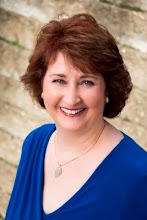Click here to visti Eileen's website
During
the 1990s, I worked as a Museum Assistant at the Massachusetts living history
museum, Old Sturbridge Village, while earning my bachelor’s degree in
history. My three year stint in the
museum’s Department of Research, Collections, and Library allowed me to hone my
skills as I assisted professional research historians and curators. It also imbued in me the desire for precise
historical accuracy after I got an insider’s look at what happens when such
accuracy is ignored.
An
extremely famous movie director and producer who shall remain nameless, called
(or rather had his staff members call) Old Sturbridge Village while he was
making a movie set in the same 1830s time period as the museum. I fielded the first call, sending it on to
the appropriate curator. As time passed,
it became the talk of the New England living history museum world as others
such as Mystic Seaport, Plimouth Plantation and the like received similar
inquiries. The movie was to be based on
an actual event, so with all the phone calls and questions, one would have
thought the film company was making every attempt to be as historically
accurate as possible.
But
something strange happened. Excitement
amongst curators and historians at the various museums quickly grew into
frustration. “Why bother to ask us if
they’re only going to do whatever they want anyway?” became a mantra. It seems that if the answer to a historical
accuracy question wasn’t the one hoped for, it was discarded in favor of what
the famous director “felt” it should be.
When
the movie was finally released, I went to see it with a close friend and research
historian. We attempted not to annoy the
people around us by keeping our dragon sighs of despair to a minimum, but we
exchanged eye-rolling glances throughout.
While the basis of the story remained true to the actual incident,
important reasons behind its occurrence were omitted. Despite the fact that
beards were completely out of fashion with American men during that time period,
almost every man in the movie had one for the simple reason that the director
“felt” they should. In one important
scene a judge wrestling with his conscience enters an ornate Roman Catholic
cathedral and prays aloud in Latin. No
and no. Catholicism was barely tolerated
in New England at the time. There were
very few Catholic churches and certainly no grand cathedrals. Despite the fact that Mass was still
celebrated in Latin, people did not offer their personal, anguished prayers in
the ceremonial language.
The
list of inaccuracies goes on and on.
There was even a pivotal character who never existed in real life. That’s fine except for the fact that the
movie was touted to be historically accurate to the point where elementary
school texts based on it were created to teach this incident in history classes
– texts which included the fictitious character.
I
understand that most of the movie’s audience probably had no idea that the
background history was inaccurate, nor did it spoil their enjoyment of the
movie. Still, whether they knew it or
not, they left the theater with several erroneous ideas regarding 1830s New
England as well as of an actual event in U.S. history.
This
experience left me with a firm promise to myself that my own historical fiction
be meticulously researched and accurately presented. I am grateful to all the historical fiction
authors who do the exacting and often tedious work of disciplined research so
their readers can immerse themselves in another time period without the
distraction of inane anachronisms. The
reader may never know what the author worked so hard to weave throughout a
fantastic story, but that behind-the-scenes work is what makes historical
fiction such a rich and delicious treat.
The reader gets a great tale along with some painlessly gained
historical knowledge all in one. What a
gift!













And all that research is why I don't write historical novels or if I do they move into the field of paranormal. I enjoyed your book
ReplyDeletegreat post. My favorite story from when I was running a local history museum is about the 1918 Jersey shore shark attacks. One of the photos published at the time was a staged photo of someone hunting the shark with a shotgun from the shore.
ReplyDeleteGreat post and so true. Historical accuracy is a must. There are readers out there who will spot an error immediately and let you know about it, not a pleasant thing.
ReplyDelete